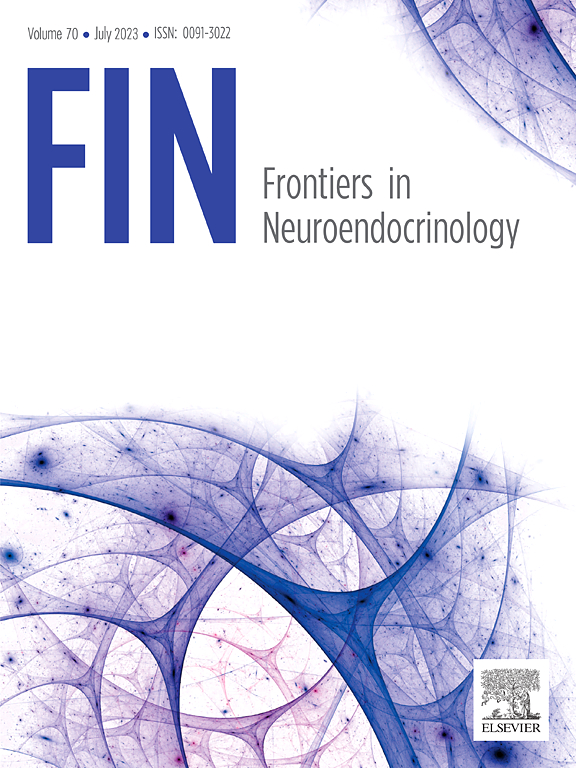Physical activity in Alzheimer’s disease prevention: Sex differences and the roles of BDNF and irisin
IF 6.7
1区 医学
Q1 ENDOCRINOLOGY & METABOLISM
引用次数: 0
Abstract
Alzheimer’s disease (AD) disproportionately affects women, with postmenopausal hormonal changes contributing to elevated risk. Physical exercise is a promising, non-pharmacological strategy to mitigate cognitive decline and AD progression. Brain-derived neurotrophic factor (BDNF) and irisin are key molecular mediators of exercise-induced brain health and protection against AD pathology by promoting synaptic plasticity, neurogenesis, and reducing amyloidosis, tau pathology, and neuroinflammation in sex-specific mechanisms. This review explores sex and gender influences on exercise outcomes and their interaction with FNDC5/irisin and BDNF signaling pathways in the context of AD prevention. We highlight emerging evidence on the interplay between exercise, sex, and neuroprotective pathways, emphasizing the need for sex-sensitive research designs to advance precision approaches for AD prevention.

体育活动在阿尔茨海默病预防中的作用:性别差异以及BDNF和鸢尾素的作用
阿尔茨海默病(AD)对女性的影响尤为严重,绝经后激素的变化会增加患病风险。体育锻炼是一种很有前途的非药物策略,可以减轻认知能力下降和AD的进展。脑源性神经营养因子(BDNF)和鸢尾素是运动诱导的脑健康和AD病理保护的关键分子介质,通过性别特异性机制促进突触可塑性、神经发生、减少淀粉样变性、tau病理和神经炎症。这篇综述探讨了性别和性别对运动结果的影响,以及它们与FNDC5/鸢尾素和BDNF信号通路在AD预防中的相互作用。我们强调了运动、性别和神经保护途径之间相互作用的新证据,强调了性别敏感研究设计的必要性,以推进AD预防的精确方法。
本文章由计算机程序翻译,如有差异,请以英文原文为准。
求助全文
约1分钟内获得全文
求助全文
来源期刊

Frontiers in Neuroendocrinology
医学-内分泌学与代谢
CiteScore
13.30
自引率
6.80%
发文量
62
审稿时长
68 days
期刊介绍:
Frontiers in Neuroendocrinology (FIN) publishes a wide range of informative articles including comprehensive reviews, systematic reviews, opinion pieces, and meta-analyses. While the majority of reviews are invited, we also embrace unsolicited reviews and meta-analyses, as well as proposals for thematic special issues, provided they meet our rigorous quality standards. In addition, we encourage authors to submit commentaries that concisely present fresh ideas or offer further analysis to delve deeper into the implications of an article published in our journal.
 求助内容:
求助内容: 应助结果提醒方式:
应助结果提醒方式:


